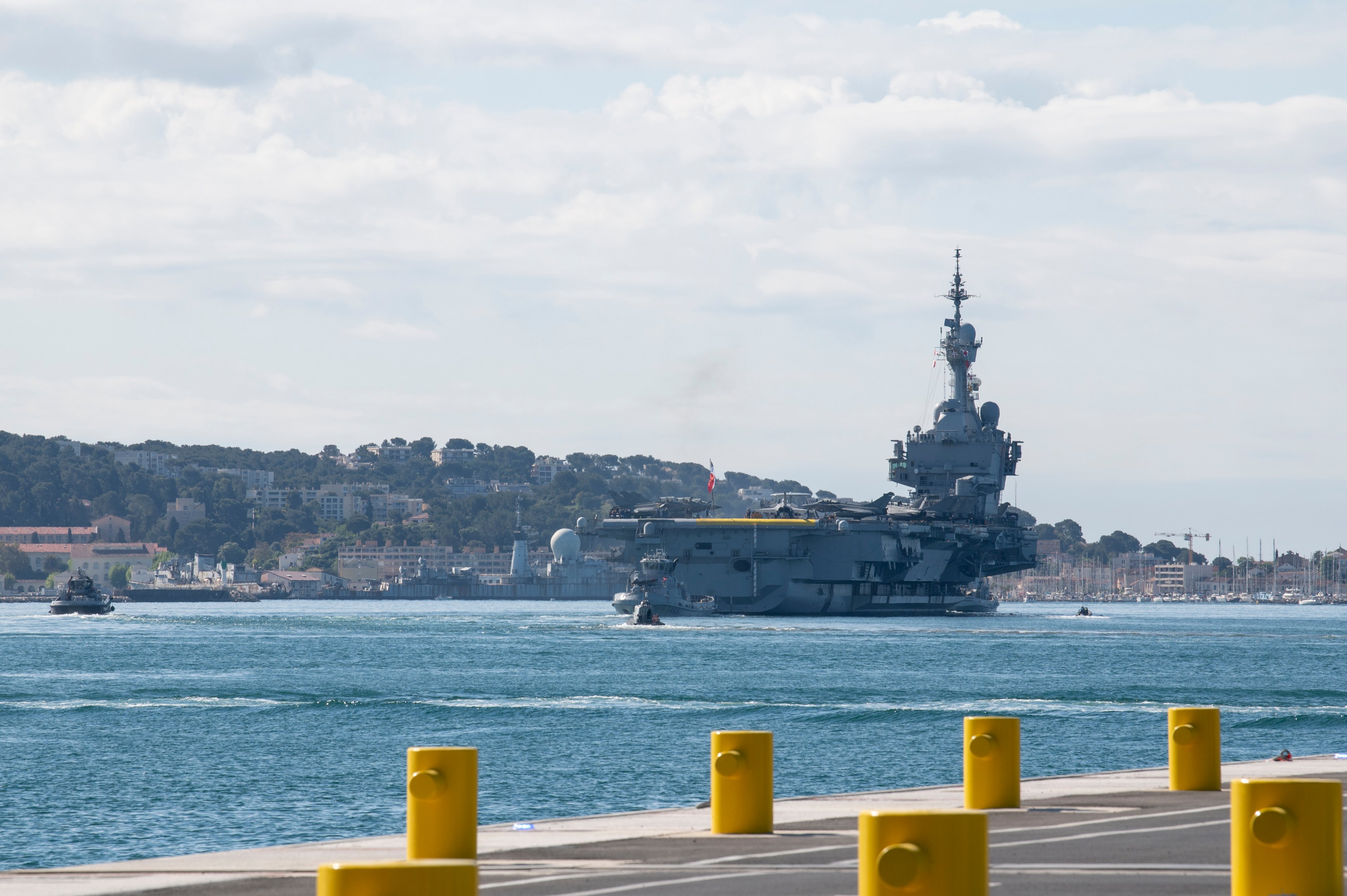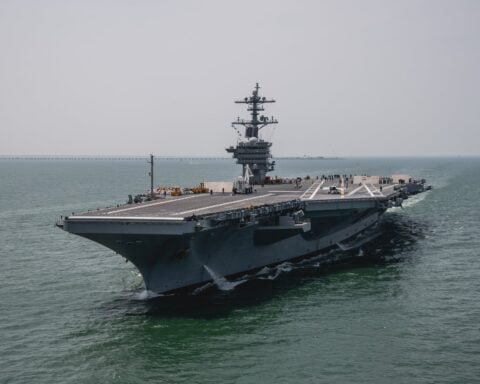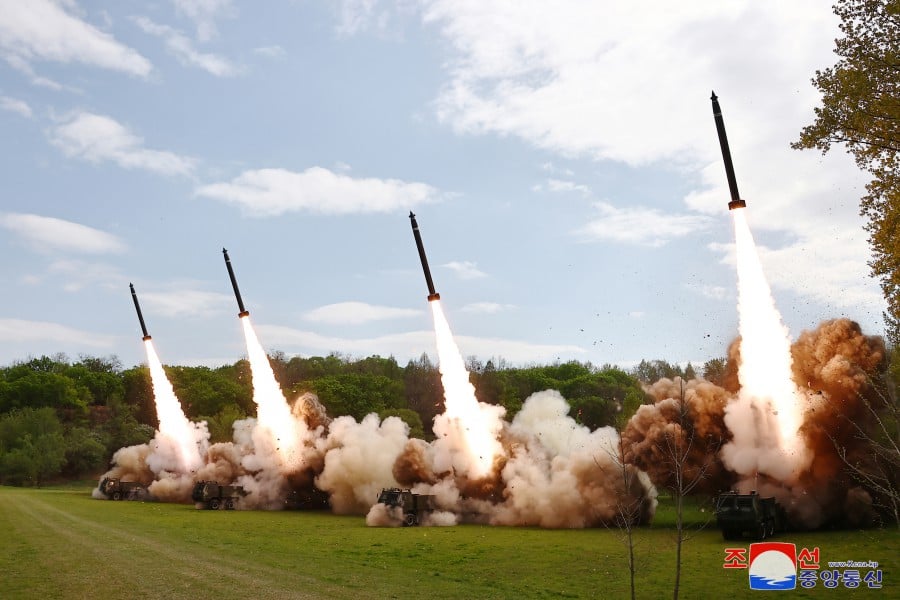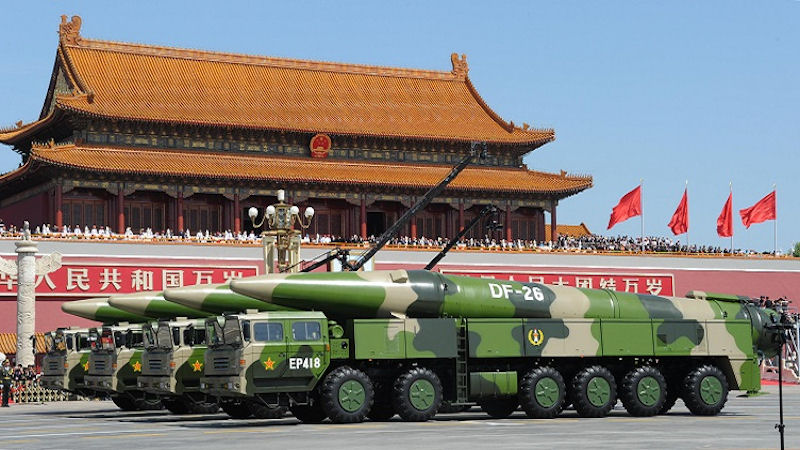
The commander of U.S. Pacific Command said the United States may want to renegotiate the Intermediate-Range Nuclear Forces (INF) Treaty with Russia because the restrictions on conventional land-based weapons are hindering the U.S. military’s ability to keep up with China.
The INF Treaty was signed in 1987 between the U.S. and the Soviet Union and bans the signatories – which today includes Belarus, Kazakstan, Russia, and Ukraine instead of the Soviet Union – from having “ground-launched ballistic and cruise missiles with ranges of between 500 and 5,500 kilometers, their launchers and associated support structures and support equipment,” according to a State Department description.
No other country in the world is bound by the treaty, meaning China, North Korea, Iran and others can pursue development of conventional missiles of any range they wish.
“We adhere to the INF treaty religiously, as we should – it’s a treaty we signed on for,” PACOM commander Adm. Harry Harris told the Senate Armed Services Committee today.
“Russia has violated the treaty in the conventional sense, with a conventional cruise missile. So at the end of the day what you have is you have a treaty that binds theoretically two countries: one of them violates it without being held to account, the other adheres to it rigidly as it should. And then all the other countries in the world are not obliged to follow the treaty, and they don’t.”
Harris said China has two missile programs in this range that worry him: the DF-21 anti-ship ballistic missile and the DF-26 anti-ship and anti-ground target “Guam Killer” ballistic missile.
“I think there’s goodness in the INF treaty, anything you can do to limit nuclear weapons writ large is generally good,” Harris said.
“But the aspects of the INF treaty that limit our ability to counter Chinese and other countries’ cruise missiles, land-based missiles, I think is problematic.”
PACOM spokesman Capt. Darryn James told USNI News after the hearing that PACOM wasn’t hoping to build an intermediate-range land-based missile to counter a specific threat set – ships or ground facilities, for example – but rather the inability to develop this type of weapon was generally a disadvantage to the U.S.
Harris said during the hearing that the treaty doesn’t apply to air- and ship-launched missiles but that “more capability against the threats we face is needed in the Pacific Command” area of responsibility.
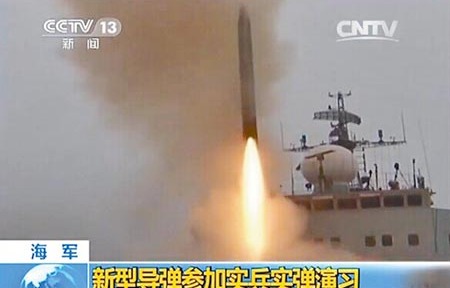
He added that China is investing in hypersonic weapons and the U.S. should be too – “we must improve our ability to defend against hypersonic weapons and develop our own hypersonic weapons, but again, in the development of hypersonic weapons, offensive hypersonic weapons, we’re going to run up against treaty restrictions.”
Regarding a way forward with the treaty, Harris said “I would never advocate unilateral withdrawing from the treaty because of the nuclear limitation part of it, but I do think we should look at renegotiating the treaty, we should consider it, because … there’s only two countries that signed on to it and one of them doesn’t follow it, so that becomes a unilateral limitation on us.”


